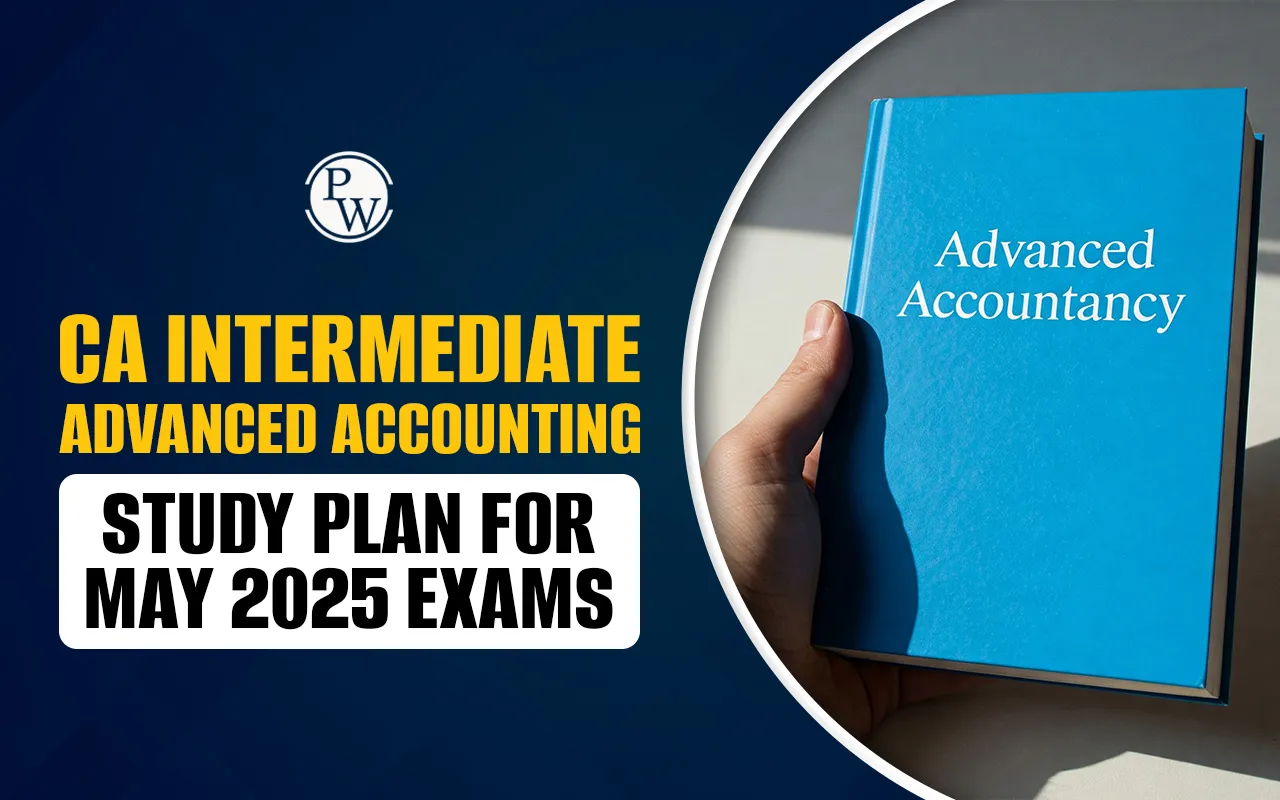
Among the CA Intermediate subjects, Advanced Accounting often evokes both excitement and anxiety. But with the right approach and a solid plan, this subject can become your strength. If you're preparing for the May 2025 exams, it’s important to understand how to balance conceptual clarity, practice, and time.
Read a detailed CA Intermediate Advanced Accounting Study Plan and understand what this subject demands and how you can ace it with the right strategy.
The CA Intermediate Advanced Accounting paper is an essential part of Group II and holds significant weightage in your overall performance. It builds on the basics of financial accounting and dives deeper into the standards, frameworks, and real-world accounting applications. You’ll be dealing with complex topics like Accounting Standards, Consolidated Financial Statements, and Accounting for Special Transactions.
This subject not only tests your conceptual clarity but also your presentation and interpretation skills. Many students find it overwhelming at first, but with a clear CA Intermediate Advanced Accounting Study Plan, it becomes manageable and even enjoyable.
Since this paper focuses on how businesses report and interpret their financial affairs, it also enhances your analytical mindset, something every Chartered Accountant needs.
As a CA Foundation student, your transition into this paper will require consistency, strategy, and a calm approach. The key lies in gradual mastery, understanding the 'why' behind every standard and regulation before rushing into memorization.
The syllabus for CA Intermediate Advanced Accounting is extensive, and being familiar with each topic helps reduce surprises during your prep. Check the CA Intermediate syllabus in the table below:
|
CA Intermediate Advanced Accounting Syllabus |
|
|
Chapter No. |
Chapter Name |
|
Chapter 1 |
Introduction to Accounting Standards |
|
Chapter 2 |
Framework for Preparation and Presentation of Financial Statements |
|
Chapter 3 |
Applicability of Accounting Standards |
|
Chapter 4 |
Presentation & Disclosures Based Accounting Standards |
|
Chapter 5 |
Assets Based Accounting Standards |
|
Chapter 6 |
Liabilities Based Accounting Standards |
|
Chapter 7 |
Accounting Standards Based on Items Impacting Financial Statement |
|
Chapter 8 |
Revenue Based Accounting Standards |
|
Chapter 9 |
Other Accounting Standards |
|
Chapter 10 |
Accounting Standards for Consolidated Financial Statement |
|
Chapter 11 |
Financial Statements of Companies |
|
Chapter 12 |
Buyback of Securities |
|
Chapter 13 |
Amalgamation of Companies |
|
Chapter 14 |
Accounting for Reconstruction of Companies |
|
Chapter 15 |
Accounting for Branches including Foreign Branches |
Creating an effective CA Intermediate Advanced Accounting Study Plan is the most important step in your preparation journey. Your study plan should be realistic, structured, and flexible enough to adapt to your strengths and weaknesses.
You have until May 2025, which gives you roughly 12 months if you start now. The earlier you start, the more buffer you have for revision and unexpected breaks. Divide the year into four phases: Learning (4 months), Practice (3 months), Mock Tests & Revision (3 months), and Final Preparation (2 months).
Spend at least 3-4 hours daily just on learning. Don't jump into question-solving immediately. Go module by module. Begin with Accounting Standards as they form the foundation for most of the paper. Dedicate time to watching lectures, reading ICAI material, and making short notes.
Now that you’ve grasped the concepts, begin solving problems. Choose past ICAI questions and RTPs. Practice the application of concepts, especially in Company Accounts and Partnership topics. Allocate more time to areas where you struggled during learning. Your CA Intermediate Advanced Accounting Study Plan should also include timed problem-solving to simulate exam conditions.
Mock tests aren’t just for checking your knowledge; they reveal your habits. Are you missing marks because of silly errors? Are you running out of time? Take at least five full-length mock tests under exam conditions. After each test, spend time analyzing your performance. This self-feedback loop will do wonders.
By now, you should be ready to revise, polish your presentation, and fine-tune your answers. This is the time to revisit tricky concepts and rewrite your short notes. Solve another round of MCQs and case studies if possible. Your CA Intermediate Advanced Accounting Study Plan at this stage should be more about retention than exploration.
Also Check: CA Intermediate Jan 2025 Advanced Accounting Exam Review
Revision is where real magic happens. It’s not enough to just complete the syllabus once. A robust CA Intermediate Advanced Accounting Study Plan includes revision cycles that sharpen your retention, speed, and confidence.
In your first round of revision, don’t just read passively. Re-attempt questions without seeing solutions, re-explain concepts aloud, and revisit ICAI examples. This active learning solidifies your base.
This time, dive deeper into problem-solving. Focus on frequently asked questions in exams and case study-type problems. Solve questions from the last 5 attempts. Your CA Intermediate Advanced Accounting Study Plan should allocate a full month just for this practice.
Now, it’s time to polish your answer writing. CA exams are not just about the right answer, they’re about the right structure, format, and timing. Practice solving papers with a timer and get your answers reviewed by mentors or peers.
Your CA Intermediate Advanced Accounting Study Plan should never include new topics the night before. Stick to revision notes, AS formats, and summary formulas. Sleep well, and enter the exam hall with a composed mind.
